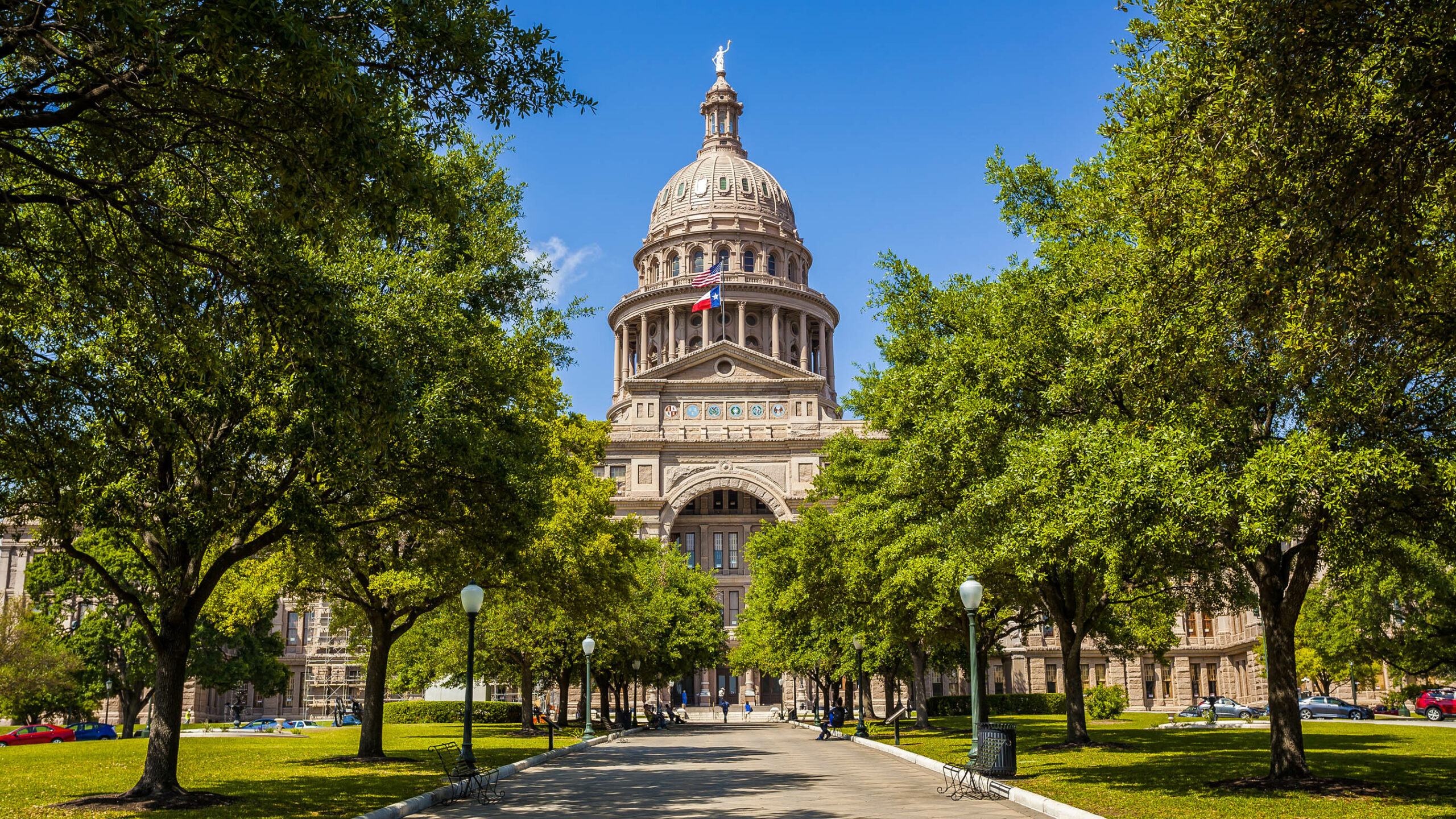The Texas Legislature failed to pass school funding reform in the regular session last May, and the issue has reached a boiling point.
A handful of districts are now considering withholding their “recapture” payments to the state. Trustees in the Houston-adjacent district of Spring Branch were the first to make that decision, and Keller ISD’s board followed with an affirmative vote this week. A discussion about recapture is on the agenda for Carroll ISD’s September meeting, and Grapevine-Colleyville board president Shannon Braun confirmed Tuesday that its trustees will also vote on whether to withhold the district’s payment this month.
Recapture is a way the state distributes the part of property tax bills that is collected by local school districts. In simple terms, property-rich schools that collect more in property taxes pay a portion of their tax revenue to the state, where it is placed in the general fund to be redistributed to property-poor schools. That’s why you’ll frequently see it referred to by the sobriquet “Robin Hood.”
When a district’s property values per student exceed the threshold set by the state legislature, it is required to “equalize” its wealth by either purchasing attendance credits, or shedding property. The latter is unattractive, so most districts opt to purchase attendance credits, payments that require one-time approval by voters.
Since its inception in the early 1990s, the number of districts required to pay recapture dollars has increased exponentially. In 1994, the first year, $127 million was collected from 34 districts. In 2021, the state collected more than $3 billion from over 170 districts. Dallas ISD became subject to recapture in 2009.
In a slate of property tax reform bills passed during July’s special session, school property taxes were compressed to reduce districts’ maintenance and operations property tax rate by 10.7 cents per $100 valuation. That M&O rate pays for things like teacher salaries and maintaining school property. (The entire property tax relief package goes to voters this November.)
Braun said that several more districts may join the fray, but that remains to be seen. Coppell ISD spokesperson Amanda Simpson said trustees in her district have “no plans” to consider withholding payments. Highland Park ISD deputy superintendent Shorr Heathcote said the district does not have plans to withhold any recapture payments, but will “continue to monitor any developments from across the state.” He said that the district has budgeted roughly $107 million for recapture, but anticipates it will drop to $89 million after voters weigh in on the property tax reform changes in November.
Simpson said recapture will make up about 15 percent of Coppell ISD’s budget expenditures, “which equates to more than $25 million to be returned to the state and going into the state’s general fund.” She said the district has paid $752 million in recapture since its inception in the early 90s.
Dallas ISD chief financial officer Tamika Alford-Stephens said the district hasn’t discussed withholding its recapture payment. If school tax compression is OK’d by voters, the district will see its recapture payment drop, too.
“The estimated recapture amount—$224 million—will decrease,” she said. “We hope to have a better estimate of the amount after the October special session.”
Braun questions whether the new compression will actually benefit school districts.
“Right now the state is claiming that they did help recapture,” she said. “And it does go back to the taxpayer, and schools that are in recapture will pay less, which is great—our payment could go down to $45 million. But that money, it’s still a lot for schools, and it’s still not going back into the school.”
Christy Rome helms the group the Texas School Coalition, which counts hundreds of Texas districts as members. Her group is advocating for more transparency, further autonomy regarding how local education dollars are spent after property taxes are collected, and a more equitable funding system between public school districts.
She agrees with Braun. She said more recent legislation actually puts local taxpayer funding and state funding at nearly 50-50, but that doesn’t mean much when public school funding is based on formulas passed in 2019. Since then, inflation has risen by almost 18 percent and labor costs have increased, as have a slew of other expenses. Fifty-fifty doesn’t have quite the same impact when you’re dividing $100, but the need is closer to $200.
“The problem is that many of the elements of our school finance formulas are based, not upon what things cost, but upon what the state could afford at the time the formula was written,” Rome said. “You’re basing recapture on very imperfect school finance formulas that don’t represent the true cost of educating a student.”
Right now, districts face two budget problems. They won’t know until the November vote whether voters will approve the compressed property tax rate. And, the state legislature will likely not take up the matter of school funding in a special session until October, at the earliest.
Even in a normal year, districts don’t start the school year with state funds, Dallas ISD superintendent Stephanie Elizalde said this summer.
“I think some people don’t realize that I have to write a check to make payroll in August—and I don’t get money from the TEA in August,” she said. “We don’t get those funds until part of the first quarter is already completed.”
Dallas ISD dipped into reserve funds to balance its budget this year, but Elizalde still was faced with layoffs in the central office to afford to staff schools. She was forced to present a deficit budget to the board this summer for the first time in years. A balanced budget would mean that the district has enough revenue to cover what is budgeted. A deficit budget means that it does not have enough money in its coffers. In Dallas ISD’s case, reserve funds made up this difference. That’s not true for many districts across the state, Elizalde said.
“I feel for some of my colleagues who are working as hard as we are, but in rural settings and haven’t gotten these funds,” she said. “They have even less than we do. How are they gonna do it?”
Rome says there are districts that pay much more in recapture than any of the districts that have considered holding on to their recapture payments in recent weeks.
“You have some of the smaller school districts in West Texas that are paying 84 percent of their total M&O collections in recapture,” she said. “Pecos Barstow Toyah ISD pays 82 percent of their collections in recapture, and they pay $189 million, and have 3,000 students.”
None of those districts, she said, have so far opted to keep their recapture money at home.
All of these issues surrounding recapture and budgeting have been a tipping point in some way for districts—even wealthier ones like Carroll, Grapevine-Colleyville, and Keller. The state has a nearly $33 billion budget surplus, but could not reach an agreement on funding public education.
“I feel for some of my colleagues who are working as hard as we are, but in rural settings and haven’t gotten these funds. They have even less than we do. How are they gonna do it?”
Dallas ISD Superintendent Stephanie Elizalde
“The reality is the state is sitting on a multibillion-dollar surplus,” said Keller ISD trustee Chris Coker. “And the argument that, in lieu of them giving us more money that we should just give them more money instead of funding schools appropriately, is absolutely asinine.”
Braun said it’s also difficult to budget for something that can increase a great deal from one year to the next.
“We are scheduled to pay $66 million this year. Last year we paid $64 million,” Braun said. “The prior year it was $56 million, and the year before that I believe was $44 million. So you don’t know what it’s going to be, and you can’t even totally budget for it because you could have an $8 million jump from year to year.”
Grapevine-Colleyville, she said, is done waiting on the state to fund its schools this year. She echoed Elizalde’s concerns about when districts actually get their state funds.
“If we normally don’t get them until October, and this special session is supposed to start in October, we may not even get the funding until after the school year,” she said.
Rome says the frustrations voiced by trustees in Keller, Spring Branch, Grapevine-Colleyville, and other districts are the same ones expressed by leaders in every district she’s encountered. Her organization says the state’s funding formulas are flawed, which exacerbates the issue and creates a false sense of equity.
The state guarantees that every district receives a base pupil rate—currently set at $6,160 per student. Districts first raise that money through local property taxes, and then additional formulas determine whether the state should provide more funding.
But as more districts become subject to recapture and are paying larger and larger payments, they question whether the rate of the increase is actually resulting in more money going to schools. They also say that the average taxpayer may also be unaware that their ballooning property tax bill isn’t solely going to their local schools.
“At the taxpayer level, you write a larger check, you feel like that means my school has more money,” Rome said. “But if you’re in recapture, it just means I’ve paid more recapture to the state, or if you’re not a recapture district, it must mean that the state sent me less money.”
If state lawmakers had passed school funding in the regular session, Rome says it’s unlikely that districts would be considering withholding recapture payments. The move, both she and Braun said, is borne of frustration.
But any discussion about withholding recapture funds needs to come with caveats—which also lend credence to the idea that these motions are largely performative in nature. Recapture payments aren’t actually due until next summer, and the resolutions districts have passed so far expire next May. This is likely because there are rules about one board creating specific obligations for future school boards.
After May elections, new trustees might shift the perspective of these school boards and find that the idea is untenable.
Too, Rome argues that the state is going to get its money regardless, either by withholding funding or by assigning portions of a district’s property tax base to neighboring districts to even their total. Parts of a district’s tax base would disappear, but they would still be required to operate the schools within them.
“They would literally come in and say, ‘You know, now this neighborhood or this part of town that is part of your school district—they’re still a part of your school district, and you’re going to serve those students who live there, but their tax base is going to this other school,’” Rome said.
Some education advocates and parents have expressed worry that this movement to eschew paying recapture is based on a goal to destabilize public education. Many of the school districts that have publicly moved forward with the idea have been identified by various news organizations as having new trustees that recently benefited from right-wing political action committees that favor vouchers and other initiatives education advocates feel are anti-public school.
Braun said that’s not her motive. “I don’t know what to think about that,” she said. “I know I was accused when I was running for school board that I wanted to destroy it, but I do want public schools to succeed.”
What she does want—and what Rome says her organization also wants—is more transparency for taxpayers.
“You should be able to go and see that your GCISD $66 million recapture payment, this is how the state spent it on education,” she said. “But it goes into the general fund, and they can’t account for it.”
Rome agrees with the need for transparency. “We believe that a taxpayer has the right to know where their tax payment is going,” she said. “I should be able to know what portion of what I’m paying is going to say, Colleyville, and what portion is going to the state of Texas. I, as the person who is writing that check, should be entitled to that information.
“But that’s not something that happens.”
Author







